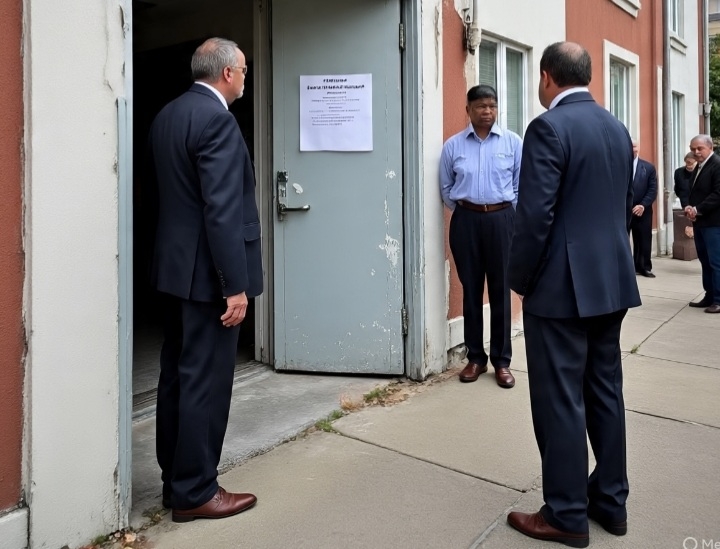Lake Properties Lake Properties
Lake Properties Lake Properties Let’s walk through each legal step in more depth when buying property from a guardian on behalf of a minor in South Africa. This process is sensitive because minors cannot legally manage or dispose of immovable property without strict court oversight.
🔍 1. Confirm the Guardian’s Legal Authority
Before any negotiations:
- Determine who the legal guardian is. It could be a parent, family member, or court-appointed guardian.
- You’ll need to inspect legal documentation confirming guardianship. This may include:
- An unabridged birth certificate (if a biological parent),
- A court order (if someone else has been appointed),
- Letters of Guardianship from the Master of the High Court (in cases of a deceased parent’s estate).
✅ Why this matters: Only a lawfully recognized guardian can represent the minor in property transactions.
📜 2. Confirm the Minor’s Ownership of the Property
- Verify that the minor is the registered owner of the property.
- A copy of the title deed from the Deeds Office will confirm ownership.
- Often, minors inherit property through a deceased estate, in which case the property is held in their name via the Guardian’s Fund or managed by an executor.
✅ Why this matters: You can only buy the property if it is lawfully registered in the minor’s name — not just in use by the minor or their family.
⚖️ 3. High Court Approval is Mandatory
According to South African law:
- The guardian must apply to the High Court (not just the Master of the High Court) for permission to sell the minor’s property.
- The High Court will assess whether:
- The sale is in the best interest of the minor;
- The property is being sold at fair market value;
- The sale proceeds will be used appropriately (e.g., invested in the Guardian’s Fund or used for the minor’s needs).
➡️ The guardian will submit:
- A formal application,
- Supporting affidavits (e.g., valuation reports, reasons for sale),
- A draft sale agreement.
⚠️ As the buyer, you must insist on seeing the High Court order authorizing the sale before proceeding.
🧾 4. Include a Suspensive Condition in the Offer to Purchase (OTP)
This protects both parties by saying the agreement only becomes binding if the High Court approves the sale.
Sample clause:
“This sale is subject to the seller obtaining written permission from the High Court of South Africa to sell the immovable property on behalf of the minor child, [name], within 60 days of acceptance of this offer. Should the required permission not be obtained within this period, this agreement shall lapse and be of no further force or effect.”
✅ Why this matters: Without this condition, the sale agreement could be invalid, and your deposit at risk.
🧑⚖️ 5. Involve a Conveyancing Attorney
A property transfer involving a minor is legally complex, so a qualified conveyancer will:
- Confirm the High Court order is valid and accurate,
- Guide the guardian on signing the transfer documents on the minor’s behalf,
- Ensure compliance with the Deeds Registries Act and Children’s Act,
- Secure the purchase price and transfer it according to court instructions.
💰 6. Protect the Deposit
Until the High Court has approved the sale:
- Your deposit must be held in trust (usually by the conveyancer),
- Do not release funds to the seller directly,
- Ensure the deposit clause in the OTP reflects this precaution.
✅ Consider using an attorney’s trust account to keep the deposit secure and interest-bearing (as required by law).
🧷 7. Post-Sale Reporting
Once the property is sold and transferred:
- The guardian may be required to report to the Master of the High Court or comply with any post-sale conditions ordered by the High Court (such as placing funds in the Guardian’s Fund).
- This protects the minor’s financial interest until they reach 18.
✅ Summary of Required Documents
| Document |
Who Provides It |
Purpose |
| Proof of guardianship |
Seller |
Confirms legal authority |
| Title deed |
Deeds Office |
Confirms minor's ownership |
| Court application and approval |
Seller |
Allows legal sale |
| Valuation report |
Seller |
Shows fair market value |
| Offer to Purchase with suspensive clause |
Buyer |
Protects buyer |
| Trust account deposit slip |
Conveyancer |
Safeguards funds |
| Final Deed of Transfer |
Conveyancer |
Transfers ownership |
Lake Properties Lake Properties













